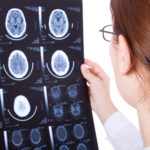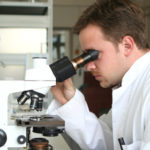
Coronavirus death rate in Wuhan is lower than previously thought
A new study reports that people who became sick from the coronavirus in the Chinese city where the outbreak began likely had a lower death rate than previously thought. For accurate and up to date information on coronavirus please go to gov.uk/coronavirus. If you’re outside the UK please see the information on coronavirus from your … Continue reading Coronavirus death rate in Wuhan is lower than previously thought

Global group to investigate links between rare genomic disorders and psychiatric conditions
Rare genetic disorders caused by small changes in a person’s genetic make up affect fewer than one in two thousand people globally, but they are a major cause of developmental and psychiatric conditions, such as autism spectrum disorder, schizophrenia, attention deficit hyperactivity disorder and intellectual disability. Recent advances in technologies to detect these small changes … Continue reading Global group to investigate links between rare genomic disorders and psychiatric conditions

Celixir gets approval for potentially pivotal clinical trial
Celixir, a private company discovering and developing lifesaving regenerative medicines, has announced it has received formal clinical trial application (CTA) approval from the Medicines and Healthcare Products Regulatory Agency to initiate a Phase IIb human clinical trial with its Heartcel medicine for the treatment of moderate to severe adult heart failure. Heart failure affects over … Continue reading Celixir gets approval for potentially pivotal clinical trial

Major cause of dementia discovered
The University of Manchester has reported that an international team of scientists has confirmed the discovery of a major cause of dementia, with important implications for possible treatment and diagnosis. Professor Garth Cooper from the University of Manchester’s Division of Cardiovascular Sciences, who leads the Manchester team, said the build up of urea in the … Continue reading Major cause of dementia discovered

Breastfed babies less likely to have eczema as teenagers
Babies whose mothers had received support to breastfeed exclusively for a sustained period from birth have a 54% lower risk of eczema at the age of sixteen, a new study led by researchers from King’s College London, Harvard University, University of Bristol and McGill University shows. The University of Bristol report the study, which is … Continue reading Breastfed babies less likely to have eczema as teenagers

A new way to prevent a deadly fungal infection spreading to the brain
University of Birmingham-led research has discovered a way to stop a deadly fungus from hijacking the body’s immune system and spreading to the brain. The team studied cryptococcosis, a disease that infects humans and animals after breathing in airborne fungi. The disease can result in a lung infection that may subsequently spread to the brain … Continue reading A new way to prevent a deadly fungal infection spreading to the brain

Smartphone apps can significantly reduce anxiety
New research has revealed that apps installed on smartphones can be used to significantly reduce anxiety (University of Manchester, 2017). Joseph Firth, from the University of Manchester, led the first ever meta-analysis of all published evidence on the effect of smartphone-based therapies on anxiety in 1,837 people. The study, published in the Journal of Affective … Continue reading Smartphone apps can significantly reduce anxiety

New insights into CMV, the leading viral cause of congenital birth defects
A study led by Cardiff University has revealed why CMV, a virus responsible for 1,000 birth defects each year in the UK, is so adept at evading the immune system (Cardiff University, 2017). The new findings, published in eLIFE, could help in the development of treatments for this and other currently untreatable viruses. By studying … Continue reading New insights into CMV, the leading viral cause of congenital birth defects

Genetics links sleep disturbance with restless leg syndrome, schizophrenia and obesity
A team of American and British scientists have discovered genetic connections between sleep disturbance and a range of medical disorders including obesity (The University of Manchester, 2016). Lead author Dr Jacqueline Lane, postdoctoral fellow at Massachusetts General Hospital (MGH) and joint senior authors Richa Saxena, Assistant Professor of Anaesthesia at the MGH and Harvard Medical … Continue reading Genetics links sleep disturbance with restless leg syndrome, schizophrenia and obesity








